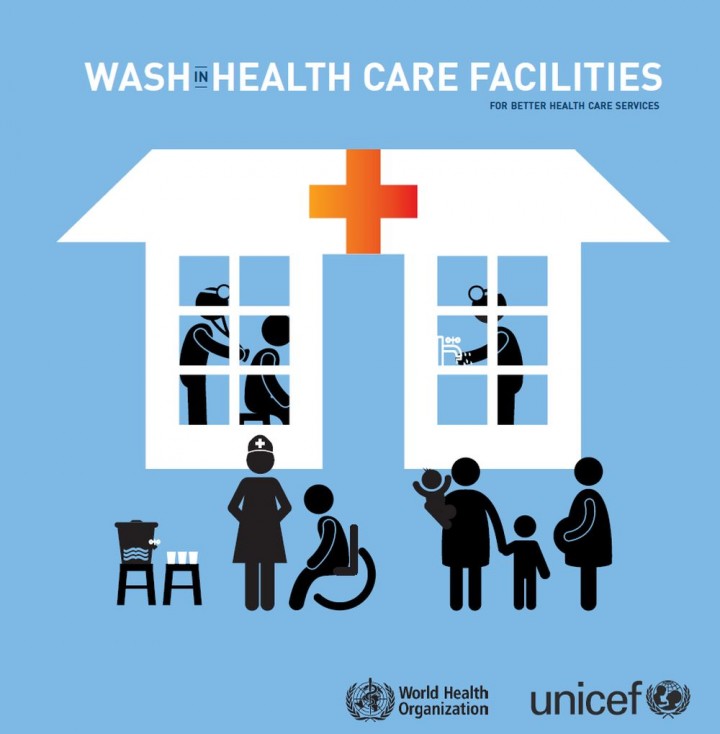Water, sanitation and hygiene in health care facilities Status in low and middle income countries and way forward WHO, UNICEF (2015)
This report presents for the first time a multi-country review of water, sanitation and hygiene (WASH) services in health care facilities in 54 low- and middle-income countries. WASH services provide for water availability and quality, presence of sanitation facilities and availability of soap and water for handwashing. The main focus of the results is on water availability as there were very limited data on water quality, sanitation and hygiene. In addition, a brief summary of data on the safe disposal of health care waste is provided.
The report provides an alarming picture of the state
of WASH in health care facilities. First, there are limited
data on WASH in health care facilities, both in regards
to geographic scope and in describing the types of services
that do exist. Second, the data that are available indicate
that many health care facilities do not have access to water
sources or sanitation facilities, irrespective of how well these
facilities function. In the few assessments that do examine
this issue, many of the WASH services are not safe or reliable,
and are inadequate for the needs of patients, health care
staff and visitors.
In addition, training and capacity building
to ensure there are sufficient resources and personnel to
operate and maintain WASH facilities and enable health
care staff to deliver hygiene behaviour change messages is
urgently needed. While the situation appears bleak, there are
a number of global initiatives for which WASH in health care
facilities is a foundational element and examples of national
governments taking the initiative to improve standards,
implementation and monitoring. Through coordinated,
global action, with leadership from the health sector,
ensuring that all health care facilities have WASH services is
an aim that can be realized.
The document was authored by Mr Ryan Cronk and Prof Jamie Bartram of the Water Institute at the University of North Carolina at Chapel Hill, USA.
Bibliographic information
WHO, UNICEF (2015). Water, sanitation and hygiene in health care facilities Status in low and middle income countries and way forward World Health Organization (WHO), Geneva, Switzerland, ISBN 978 92 4 150847 6
Filter / Tags
Recommended by SuSanA (other than SuSanA publications)Sustainable WASH in institutions and gender equality (WG7)PractitionersEnglish
Downloads
Water, sanitation and hygiene in health care facilities
Type: application/pdf
Size: 0.83 MB

